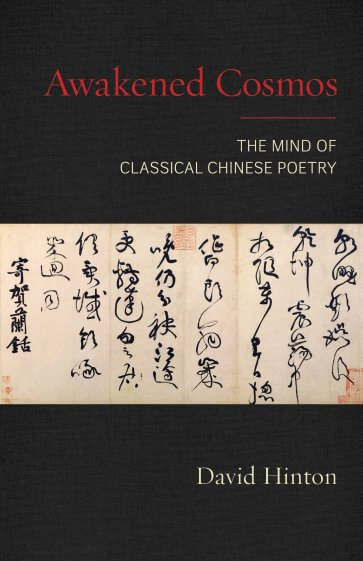Book Review: Awakened Cosmos
The mind of Classical Chinese poetry by David Hilton
Jeremy Frank reviews a book of poems by Tu Fu which charts the poet's spiritual understanding. Poetry is often used to give a sense of the 'ineffable' and the translator, David Hilton also supplies a useful commentary on Tu Fu's succinct insights.

Book cover
Shambhala
I approached the review of this book for The Zen Gateway with a certain amount of trepidation but was reassured whilst reading the introduction as it clearly and succinctly introduces it’s aims to explore the ‘Cosmos awakened to itself’. This task was to be focussed through the lens of classical Chinese poetry, which was shaped by Taoist and Cha’n (Zen) Buddhist philosophy and religious practice.
Nowadays in our modern world we are guided by scientific reasoning to provide us with an understanding of the origins and nature of the Universe. In some ways our current understanding chimes with that of the Classical Chinese poets, who considered the essence of all reality to be a single living tissue, and used their poems to point towards the very existence and interdependence of all forms. They thus conveyed existence as an on-going cosmological process; for Zen students, it is akin to the transformation of the ten thousand things, always in a state of flux, coming to be and ceasing to be.
David Hinton uses his in-depth understanding of the Chinese language to analyse and draw out the philosophical and experiential elements of the classical poems, which at a word level are impossible to translate directly into an English equivalent.
His skill in deeper interpretation is similar to the way different parts of a classical Chinese painting focus the observer’s attention on the meeting points between the form and the formless, or as Hinton frequently mentions, to the relationship between the absence and presence of form, and points us towards the mystery of the origin of existence itself, or, as the title suggests, the Awakened Cosmos.
Hinton follows the life story of one of China’s greatest poets, Tu Fu, who lived 712- 770 C.E. at the height of the Tang Dynasty. Tu Fu’s life story is full of intrigue, interest and, at times, extreme hardship. The 19 poems presented in the book cover his writing life. Hinton uses the narrative to explore the poet’s spiritual development and to provide a perspective on the poet’s awakened consciousness. Each poem is presented in three parts; first, the original poem in Chinese with the equivalent English translated words, second, a translation of the poem conveying the deeper meaning, and finally a commentary providing the context and illuminating the essence of the poem, often in terms of Taoist thought and philosophy.
I found this short book an interesting and thought provoking read, not only from the perspective of reading about an itinerant poet living during the 8th Century in China, but also in gaining an understanding of the Taoist thought and philosophy that has had such a strong influence on Ch’an Buddhism. This book is a good read both for those practicing Zen Buddhism and for those with an interest in Chinese poetry. For those wishing to study Chinese poetry to a greater extent the author recommends his companion book; ‘The selected poems of Tu Fu: Expanded and Newly Translated’ (publ. New Directions).
(Awakened Cosmos - The mind of Classical Chinese poetry by David Hilton, Shambhala Publications Inc (14 Oct. 2019)




